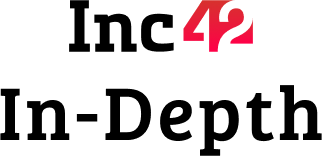
The development comes as Dunzo has been struggling with cash flow issues, which has resulted in pending dues to vendors and staff salary arrears
The delay in vendor payments has also reportedly invited legal notices from at least seven companies, including Google and Facebook
Meanwhile, Dunzo has also been looking to source fresh funding from both new and existing investors
Quick commerce unicorn Dunzo
The development comes as the quick commerce unicorn has been struggling with cash flow issues, which has resulted in pending dues to vendors and staff salary arrears stretching to two months.
The delay in vendor payments has also invited legal notices from at least seven companies, including Google and Facebook, over pending dues.
The talks include finalising new terms, including payment timelines, ET said in a report.
Dunzo has also been looking to secure funding from both new and existing investors for quite some time now. While the startup has cash in the company, debt obligations with cash flow have made the situation trickier, the report added, citing sources.
The situation is similar to PharmEasy; if certain debt covenants are breached, the company’s ability to access available cash becomes restricted. As such, Dunzo is said to be batting for a way out of its current predicament to access the cash at hand and make outstanding payments.
However, Dunzo denied the report and said that the information on debt restructuring is incorrect. “We cannot respond to rumours without specifics. Our business operates with a healthy mix of debt and equity based on the best efficiencies,” said the spokesperson.
Further, the startup said its business has turned ‘contribution margin positive’ without giving any specifics. Dunzo’s spokesperson added that the startup has had ‘interest’ from investors in ‘different forms of capital’.
Amid the developing situation at Dunzo, the Reliance-backed unicorn has joined the Indian government-backed Open Network for Digital Commerce (ONDC). The startup integrated its B2B logistics vertical Dunzo For Business (D4B) with ONDC earlier this month, enabling 1,500 local merchants to join the network within a week.
Meanwhile, Dunzo’s D2C operations under Dunzo Daily have fallen to a fifth of its peak of 5.5 Mn monthly transactions it achieved last June, per media reports.
The startup has also reverted to its earlier business model, shifting from owning dark stores to partnering with stories on a revenue-sharing model. Currently, the startup is said to operate only around seven dark stores, all in Bengaluru.
It is also said to be considering layoffs, with as many as 200 jobs on the chopping board. However, the reports are from July and Dunzo has yet to say anything on the matter.
Debt financing quickly gained popularity among Indian startups in the face of an ongoing funding winter. While many startups were able to secure big debt rounds, cash flow issues have restricted their ability to pay back the lenders, resulting in more problems down the line.
BYJU’S is perhaps the biggest example of this, in terms of scale. The edtech decacorn is currently embroiled in negotiations with lenders across two separate loans amounting to nearly $1.5 Bn to restructure its debt. Similarly, B2B ecommerce startup Reshamandi is also said to be in trouble as it has delayed outstanding dues worth $36 Mn (around INR 300 Cr).




 Fintech
Fintech Travel Tech
Travel Tech Electric Vehicle
Electric Vehicle Health Tech
Health Tech Edtech
Edtech IT
IT Logistics
Logistics Retail
Retail Ecommerce
Ecommerce Startup Ecosystem
Startup Ecosystem Enterprise Tech
Enterprise Tech Clean Tech
Clean Tech Consumer Internet
Consumer Internet Agritech
Agritech































